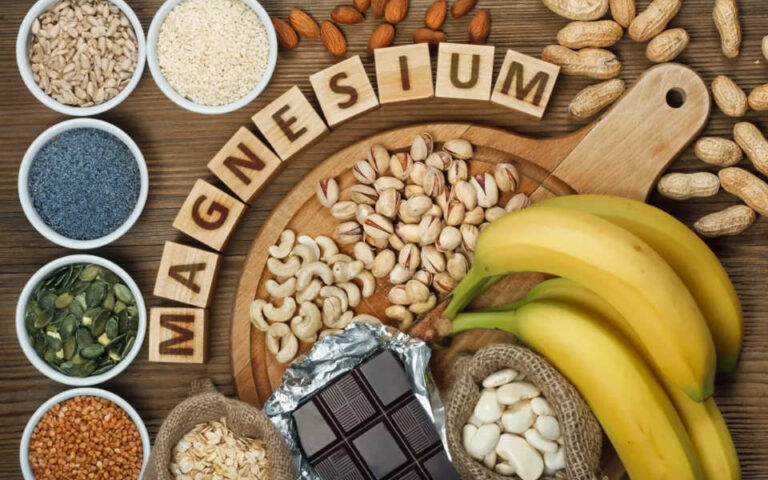Even before the great civilizations rose, humans have already recognized some of the ginger health benefits. Since ancient times, humans have been using ginger as a remedy for illnesses like colds, nausea, migraine, hypertension, and arthritis. Although it is possible that humans have been cultivating ginger as a medicinal plant before the Indians and the Chinese, available records state that the aforementioned countries have been cultivating the plant for over 5000 years. Ginger benefits were not solely recognised in Asia. In fact, ginger was India’s major export to the Roman Empire. Even after the Roman Empire fell, European countries still exported ginger but mostly from the Arab merchants. In the thirteenth and fourteenth centuries, a lot of people intended to consume ginger for health benefits. However, it became very expensive because it was highly sought after. Back then, a pound of ginger can be traded for a sheep. The popular Christmas treat, gingerbread man, was made popular by Queen Elizabeth I of England in the fifteenth century.
Ginger is primarily used as an aromatic spice. The ketone ‘gingerol’ is responsible for its strong aromatic property, and for ginger health benefits. Zingiber officinale is the most commonly consumed ginger species. Most studies that are conducted on ginger use this species.
Ginger benefits and side effects are closely being studied and most of the research that was previously conducted has been reviewed extensively. This is a result of the fact that a lot of older adults, those who are in their 60s and up, are using natural or alternative medicines, like ginger.
Is Ginger A Superfood?
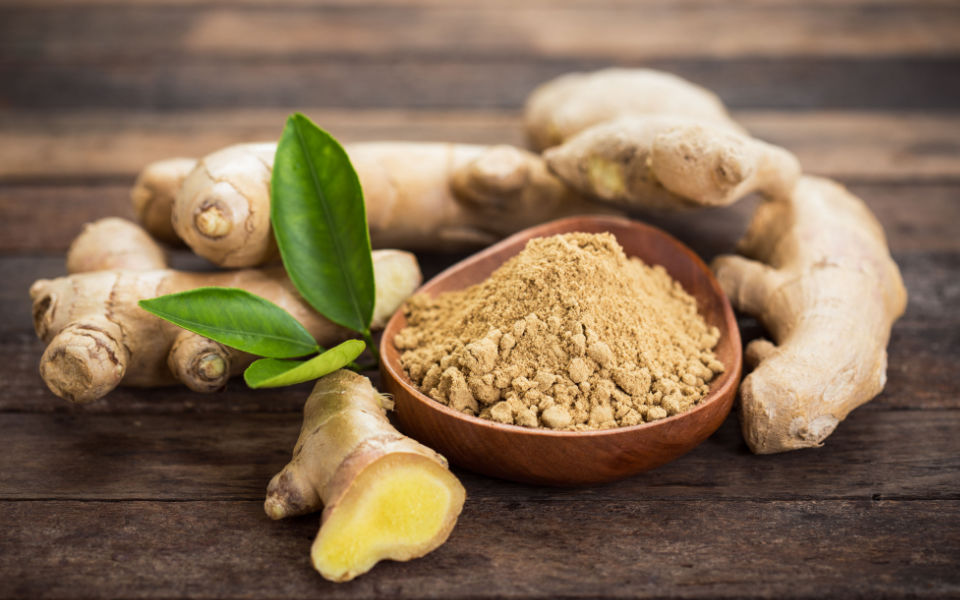
There are numerous purported ginger health benefits, most of which are influenced by traditional medicine. Although further studies are needed, most of these studies on ginger benefits show promising results. Gingerol is responsible for most of the health benefits of ginger. It is an antioxidant, an anti-inflammatory, anti-nausea, anti-cancer, and hypotensive organic compound. Although some may not like the strong taste of ginger, its versatility as an ingredient may make up for this disadvantage. For example, ginger tea may not be suitable for someone’s taste. However, by adding in some Yuja-cheng or Citron Marmalade the tea’s taste is improved considerably. So to sum it all up, yes, ginger can be considered a superfood.
Ginger Benefits
1. Alleviates Nausea
Due to its strong scent and spicy taste, ginger has been used to treat nausea for a very long time. Several studies have been conducted to verify its effect on various types of nausea such as morning sickness, and chemotherapy-related nausea. 12 studies involving a total of 1,278 pregnant women as patients were reviewed in 2014. The results of this review revealed that 1.1 to 1.5 grams of ginger can help alleviate morning sickness. A smaller study involving 60 children and young adults who are undergoing chemotherapy was conducted in 2010 to investigate the effects of ginger root powder supplements on chemotherapy-related nausea. At the end of the clinical trials, the researchers concluded that the supplements reduced the severity of nausea in most of their patients. A year later, a review of studies that dealt with ginger’s effect on nausea showed that 1,500 milligrams of ginger extract helped alleviate symptoms of nausea.
2. Promotes Weight Loss
Spicy foods are always assumed to help in weight loss because their spicy nature increases body temperature which may speed up metabolism or promote fat loss. This may not be the case most of the time. However, for ginger’s case, there are some pieces of evidence that support the claim that it can promote weight loss. In a 2019 literature review, body weight, waist-hip ratio, and hip ratio in people who are overweight or are obese were said to have improved after ginger supplementation. In general, studies that were included in the review gave a higher dose of 2 grams of ginger powder for 12 weeks. A different review which was about functional foods reported similar findings, ginger has a positive effect on obesity.
3. Soothes Osteoarthritis Pain
Ginger benefits those who have osteoarthritis pain as demonstrated in a review that was published in the OsteoArthritis Society International. The studies that were included in this review involved the administration of 500 milligrams to 1 gram of ginger each day for a duration of 3 to 12 weeks to individuals with knee pain. Most of the participants were diagnosed with osteoarthritis, and most of the participants reported pain relief because of ginger. A 2011 study studied ginger’s efficacy as a topical treatment for osteoarthritis pain. However, ginger was combined with mastic, cinnamon, and sesame oil. Results of the study show that the topical treatment provided pain relief and reduced stiffness; it is unclear if the same results would be observed if the other ingredients besides ginger would be omitted.
4. Aids in Maintaining Normal Blood Sugar Levels
A 2015 study reported that 2 grams of ginger powder, when taken each day, can lower fasting blood sugar by 12% and improved haemoglobin A1c levels after 12 weeks. However, a more recent literature review debunked the 2015 study’s claim that ginger can lower fasting blood sugar. On a positive note, the review reported that ginger can help maintain a normal haemoglobin A1c level.
5. Heart Disease Risk Reduction
The same 2015 study that investigated ginger’s effect on fasting blood sugar, found out that their patients exhibited a reduction in Apolipoprotein-B/Apolipoprotein-A-I ratio by up to 28%. Moreover, a 23% reduction in malondialdehyde (MDA), a by-product of oxidative stress, was also observed. High levels of Apolipoprotein-B/Apolipoprotein-A-I ratio and malondialdehyde (MDA) are risk factors for heart disease. Since ginger lowered these risk factors then we can say that ginger may lower the risk of developing heart disease.
6. Chronic Indigestion and Gas Treatment
Slow gastric emptying or slow movement of food through the gastrointestinal tract have been implicated in most indigestion and stomach discomfort cases. In 2008, 12 out of 24 healthy volunteers were given ginger capsules and the other 12 were given a placebo capsule. All of them ate soup an hour after they took the pill. Those who took the ginger capsule took 13.1 minutes, on average, to empty their stomach. Twice as fast as those who took the placebo which emptied their stomach after 26.7 minutes. Three years later, this study was repeated but they had people with functional dyspepsia as their patients. Those who took the ginger capsule emptied their stomach after 12.3 minutes while those who took the placebo emptied their stomach after 16.1 minutes. All of these points to the conclusion that ginger may help treat indigestion and stomach discomfort by improving gastric movement.
A gassy intestine may also cause discomfort. Fortunately, studies have shown that ginger benefits those who have gas in their intestine by providing beneficial enzymes that help break the gas down or expel them.
The Complete Book of Ayurvedic Home Remedies by Dr. Vasant Lad explains that ginger helps ‘rekindle the digestive fire’. According to Dr. Lad, this is the reason why ginger is effective at treating stomach discomfort.
7. Menstrual Pain Relief
Ginger benefits those who are experiencing menstrual pain. 150 women were separated into three groups. Two groups were instructed to take a non-steroidal anti-inflammatory drug for the first three days of their menstrual period. One of the two took 400 milligrams of ibuprofen, and the other took 250 milligrams of mefenamic acid. The third group, the group that did not take pharmaceutical drugs, was instructed to take 250 milligrams of ginger powder instead. Results of the study were collected after three days and it revealed that those who took ginger powder experienced the same amount of pain relief as those who took the non-steroidal anti-inflammatory drugs. A 2018 study did something similar and showed similar results.
8. Cancer Prevention
Gingerol is an organic substance that exhibits antioxidant properties. Some studies suggest that it has powerful anti-cancer properties. A 2014 review agrees with this notion. However, further studies are needed before ginger can be established as a chemo-protective agent against cancer.
9. Protection from Infections
Several studies have shown ginger’s antibiotic property. In fact, its antibacterial property is very potent that it has the potential to inhibit the growth of drug-resistant bacteria.
10. Relief from Cold Symptoms
Dr. Lad’s book also mentioned that by combining ginger, cinnamon, and lemongrass and turning them into a tea, you’ll be able to find relief from cold symptoms. A 2013 study has shown that ginger may be able to help in treating respiratory syncytial virus or RSV infection. This means that there is some scientific evidence to the practice of using ginger as a treatment for the common colds.
11. Maintenance of Oral Health
Gingerol can help keep your teeth and gums healthy. The growth of oral bacteria linked to gingivitis and periodontitis is inhibited by this organic substance. This was demonstrated by a study that was published by some researchers from the Korea Research Institute of Bioscience and Biotechnology.
12. Ginger Benefits for Skin
As mentioned previously, gingerol is a powerful antioxidant. Since this is so, taking in ginger may improve your antioxidant status. When you have a good amount of antioxidants in your body, free radical damage is prevented. This in turn would prevent premature skin ageing, improve blood circulation to the skin cells, promote collagen production, improve skin elasticity, and improve skin tone.
13. Ginger Benefits for Men
In animal studies, gingerol’s ability to stimulate Cyclic guanosine monophosphate which would, in turn, boost the production of Nitric Oxide has been demonstrated. Furthermore, the increased Nitric Oxide in the blood improves blood flow to the testis thereby enhancing testosterone production.
General Precautions with Regards to Ginger Consumption
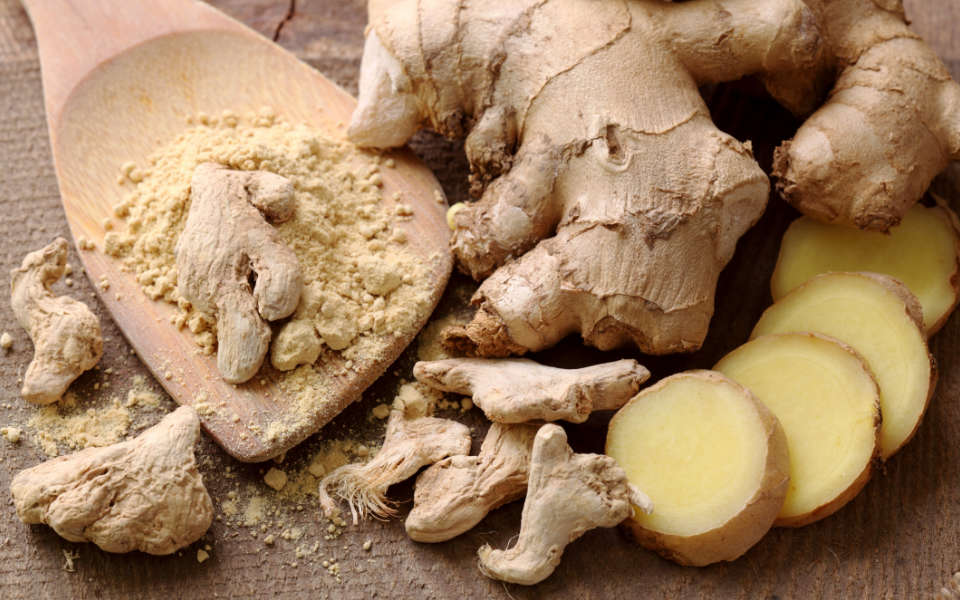
1. Dosage – How Much Ginger Should I Take Daily?
Although there is still no definite dosage for ginger, clinical trials have used dosages of 170 milligrams to 1 gram of ginger without reporting any adverse side effects.
So is it safe to drink ginger tea every day? Unless studies would say otherwise, it is safe to drink or consume ginger on a daily basis.
2. Ginger Side Effects
Ginger benefits and side effects come in a bundle as with most form of medication. According to the US Food and Drug administration ginger is safe in general but there have been cases where large doses caused gastric irritation, arrhythmia, and immunoglobulin E allergic reactions were observed.
3. Contraindications – Conditions That May Make Consumption Inadvisable
Pregnancy
Since we don’t know much about ginger’s effects on embryonic development, pregnant women are advised to avoid ginger or minimize their consumption if they can.
4. Drug Interactions – Pharmaceuticals That May React with Ginger
a) Anti-platelet or anti-coagulant drugs
There are some pieces of evidence that ginger may enhance a drug’s anti-platelet or anti-coagulant actions which may lead to bleeding.
b) Anti-hypertensive drugs
Ginger may diminish the effects of these drugs. Your hypertensive drugs may not work effectively when your taking in ginger along with it.
c) Herbal medication with antiplatelet or anticoagulant properties
Similar to anti-platelet or anti-coagulant drugs, herbal medication with the same property is enhanced by ginger. Bleeding may occur when the action of platelets and coagulation proteins are excessively inhibited.
d) Hypoglycemic herbal agent
Ginger may enhance the effect of hypoglycemic agents and may decrease a person’s blood sugar too much. Taking in hypoglycemic herbal agents and ginger may put you at risk for hypoglycemia, a condition where there are abnormally low levels of glucose in an individual’s blood.
e) Non-steroidal anti-inflammatory agents
Ginger may enhance the adverse or toxic effects of Non-steroidal anti-inflammatory agents, even herbal ones. Bleeding may occur as a side effect.
f) Salicylates
Ginger may enhance the side-effects of pharmaceutical or herbal sources of salicylates. Bleeding may occur as a side effect.
Healthy Ginger Recipes
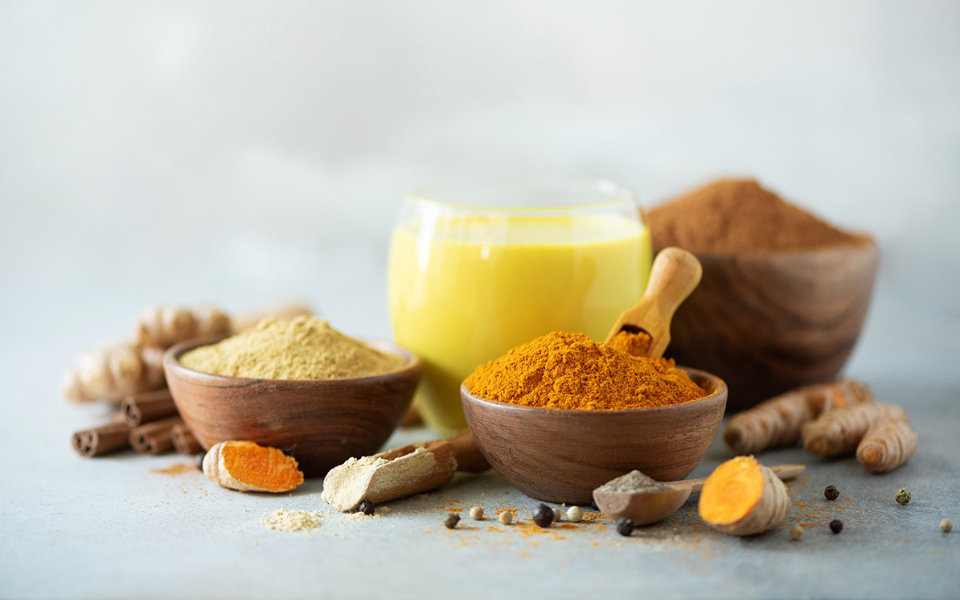
1. Ginger Recipes Drinks – Ginger Tea
Ginger tea is easy to make. Just add a quarter of a teaspoon, ¼ teaspoon, of ground ginger into a mug and pour 1 cup of boiling water into the ginger. Cover the mouth of the mug with a saucer and let the ginger simmer for several minutes. Wait for the mixture to cool down to a tolerable temperature. You may sweeten this drink with honey. Drink one to two cups per day.
You can make this drink even healthier and more enjoyable by adding some lemon. Essentially, you are making a honey lemon ginger tea. Just slice a medium-sized lemon in half and squeeze its juice into the cup. Add honey to taste.
You could also make a honey citron and ginger tea drink. Simply swap out the lemon and honey with Yuja-cheng or Citron Marmalade.
2. Ginger Recipes Baking – Recipes for Ginger Biscuits
Ingredients
For the gingerbread cookies, you need the following:
- one tablespoon of ground ginger
- one tablespoon of ground cinnamon
- half a teaspoon of ground cloves
- half a teaspoon of ground nutmeg
- half a teaspoon of Himalayan salt
- a quarter of a teaspoon of finely ground black pepper
- three cups and a quarter of all-purpose flour
- three-fourths of a teaspoon of baking soda
- three-fourths of a cup or one stick and a half of unsalted butter, softened to room temperature
- half a cup of raw cane sugar that has been packed
- one large egg
- half a cup of unsulfured molasses
For the icing, you need the following:
- One raw egg white or One tablespoon of egg white powder
- half a teaspoon of lemon juice
- One and three-fourths of a cup of raw cane sugar
You can add raisins and chocolate chips as decoration.
Instructions
- Take a large bowl and mix all the dry ingredients, ground ginger, ground cinnamon, ground cloves, ground nutmeg, salt, ground pepper, flour, and baking soda. Vigorously whisk them together and set them aside.
- Cream the butter using a spatula or you can use a stand mixer that is fitted with a paddle attachment. Beat the butter until it is light and fluffy. Mix in the raw cane sugar and continue beating until the raw cane sugar is evenly distributed into the butter. Afterwards, add the egg and molasses.
- Little by little, add the flour and spice mixture into the buttery mixture. Combine everything on low speed. You may have to mix the dough by hand when it becomes too thick for the mixer.
- At this point, you should have a thick and even mixture, this is the dough. Divide the dough in three and wrap each one in beeswax wrap. Chill each dough for at least one hour or if possible store them in the refrigerator overnight.
- Once your dough has undergone the chilling process. Let them sit in room temperature for 5 to 10 minutes. There are times that the dough may still be too soft to roll out. If this happens, try to mix in some flour into it by hand.
- Before you begin rolling out the dough, preheat your oven to 350 degrees Fahrenheit or 177 degrees Celsius.
- Roll out the dough, place one dough on top of a lightly floured wax paper or parchment paper. Roll them out using a rolling pin until they are only one-eighth of an inch thick. Transfer the rolled out dough into a large container with a cover and refrigerate them again.
- Cut out the cookies using a cookie cutter. If you don’t own a cookie cutter, then you may use a stencil and a sharp knife to cut out the gingerbread man shapes.
- Transfer the cookies into a baking sheet and decorate them with raisins and chocolate chips however you like. You may use other ingredients such as nuts to decorate your gingerbread man.
- Bake the cookies in the preheated oven at 350 degrees Fahrenheit or 177 degrees Celsius.
- While your cookies are baking, start making your icing. Beat egg whites and lemon juice together. Add the raw cane sugar until the mixture holds stiff peaks.
- If using powdered egg whites. Dissolve the powder in two tablespoons of water. and proceed as if you’re beating egg whites and lemon juice together.
- Sometimes the icing may still be too runny. If that is the case, add in more raw cane sugar.
- Use the royal icing quickly for they have the tendency to harden.
- Decorate your cookies with the icing. Place them inside a piping bag so that you can pipe out decorative shapes onto your gingerbread man. Remember to keep your icing covered while you work as it might dry out.
- Let the icing dry completely, leave the cookies at room temperature for 12 hours.
How to Grow Ginger in Your Home
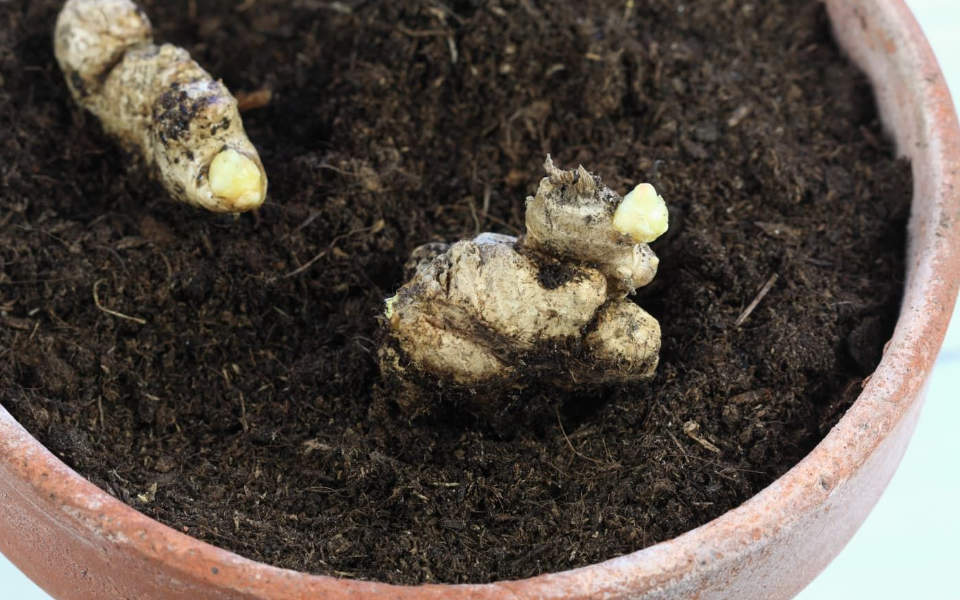
Ginger is a plant that thrives in tropical climates. If you are attempting to grow ginger that is not tropical and subtropical, then you may have to exert extra effort to keep the plant alive. Before you need to worry about your area’s climate, you need to look for some ginger rhizomes to plant. Although the ones you could buy in the groceries can be planted, this is not advisable for they are not intended for this purpose and you might find that they are quite difficult to grow.
Most retailers and nurseries online would sell ginger rhizomes that are perfect for planting. However, if you can purchase it locally and see the rhizomes in person, there are certain criteria that you need to look out for. Roots should be large, about 4 to 6 inches long, and generally healthy meaning no weird discolouration or tissue damage. There should be multiple projections or fingers growing from it. Once you have chosen the right rhizome. All you need to do is plant them in a rich, loamy, and well-draining soil.
Planting the Ginger Rhizome
- Enrich your soil with compost or aged manure if it lacks nutrients.
- If you live in an area with four seasons, plant your ginger in the spring season.
- Remove the fingers with a knife. Ensure that the remaining rhizome is around 1 to 2 inches long and that it has at least one bud.
- To minimize the chances of root rot from occurring. Dry your rhizome for 24 to 48 hours prior to planting.
- Plant the rhizomes at a depth of one inch. Try not to plant it too deep or too shallow.
- Create a well on the soil around the area where you buried the rhizome.
- Water regularly. Use only a small amount of water but make sure it goes deep.
- You should see leaves emerge from the ground after a week.
If you leave in a temperate area, consider using a mobile plant pot. When the temperature starts to drop, you can transfer your ginger plants indoors as they are sensitive to cold temperatures.
Take note that there are times that the plants wouldn’t sprout. There are a lot of variables that come into play and you couldn’t take them all into account. In this case, just start over. When they are ready to harvest, simply dig up the root. However, if you want to harvest them with the purpose of replanting them, you may want to keep the rhizome alive. To do this, you need to dig deeper and clear away the soil until you can access the bottom part of the rhizome. You could then uproot the plant without killing the rhizome.
Conclusion
Ginger’s medicinal properties have been tested through time. Even in our modern times, a lot of people still consume ginger for health benefits. There is no doubt that this spice has great potential as a medicinal plant. Moreover, this spice is versatile. It can be used as a health tonic slash tea. Or it could be incorporated in pastries such as the gingerbread man, perfect for the holiday season. Despite its awesome benefits, you should still be informed of its drug interactions and side effects.


